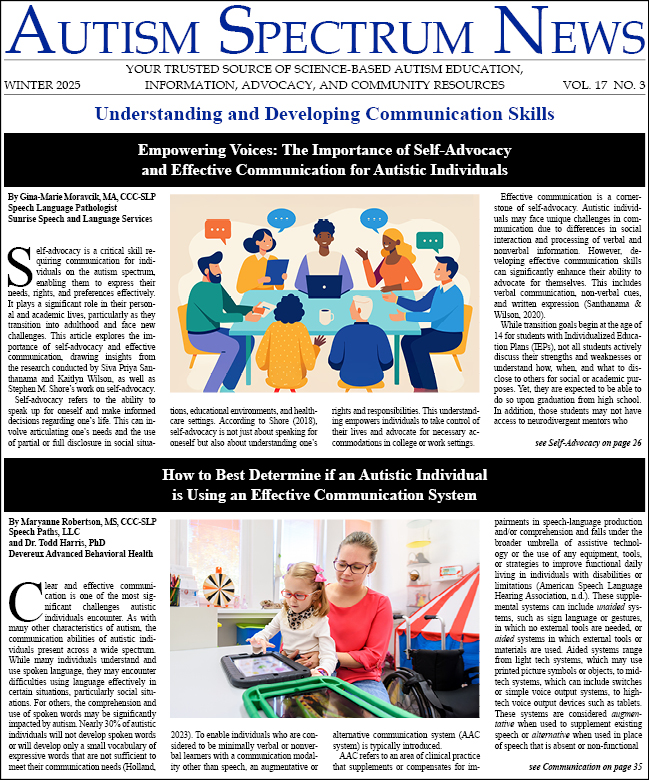A Scale to Assist the Diagnosis of Autistic Disorder in Adults 18 Years and Older
The RAADS-R is an eighty item scale specifically designed to assist clinicians diagnosing Autistic Disorder (AD) in adults eighteen years and older. It contains a total of eighty questions. Sixty-four short questions identify symptomatic behaviors that are scored on a 4-point Likert scale that takes into account developmental factors (True now and when I was young =3, True only now = 2, True only when I was younger than 16 years old = 1, and Never true = 0). It also contains and sixteen non-symptomatic questions that are scored in reverse order (True now and when I was young =0, True only now=1, True only when I was younger than 16 years old =2, and Never true =3). These sixteen questions are identified on the scale by an asterisk next to their question number.

Edward R. Ritvo, MD
The RAADS-R was validated in an international study conducted at nine medical centers on three continents (North America, Europe, and Australia). Subjects included 201 Autistic Disorder adults and 578 comparison cases (276 who never had a DSM-IV TR diagnosis, and 302 who had a DSM-IV TR diagnosis other than Autistic Disorder). Results revealed: Sensitivity = 97% (percent of false negative or missed diagnoses), Specificity =100% (percent of false positive diagnoses), Concurrent Validity = 96% when compared with another diagnostic instruments (ADOS Module 4, SRS), and Test Retest Reliability r = .987. Detailed statistical analyses are contained in the articles cited below.
To administer the RAADS-R, a diagnostician reads each question to the subject and marks the answer sheet. This insures that the questions are understood, the answers are properly coded, and the score can be quickly determined. Most importantly, however, it gives the diagnostician a chance to identify and discuss specific symptoms during administration. The average time to complete and score the RAADS-R is thirty minutes.
A total RAADS-R score of 64 or higher is consistent with the diagnosis of AD, and supports a clinician’s diagnosis. However, if there is difference between the clinician’s diagnosis and the RAADS-R diagnostic assignment, the clinician’s diagnosis should take precedent. This is because symptoms may be revealed only during an interview. Also, the RAADS-R standardization study reported that many AD subjects, particularly those in their late teens and early twenties, failed to acknowledge the presence of symptoms that their families said were present and which were readily observed by the diagnostician.
The RAADS-R is not copyrighted and the authors have no financial interests in this scale or its use by clinicians.
The RAADS-R is available online from Springer Link free of charge for appropriate clinical use. It is available in print via this journal: Riva Ariella Ritvo, Edward R. Ritvo, Donald Guthrie, Max J. Ritvo, Demetra H. Hufnagel, William McMahon, Bruce Tonge, David Mataix-Cols, Amita Jassi and Tony Attwood, et al (2011). The Ritvo Autism Asperger Diagnostic Scale-Revised (RAADS-R). A Scale to Assist the Diagnosis of Autism Spectrum Disorder in Adults: An International Validation Study. Journal of Autism Developmental Disorders (in press) – https://www.ncbi.nlm.nih.gov/pmc/articles/PMC3134766/.
A Swedish version is available at this journal: Lisa M. J. Andersen, Katharina Näswall, Irina Manouilenko, Lena Nylander and Johan Edgar, et al. (2011). The Swedish Version of the Ritvo Autism and Asperger Diagnostic Scale: Revised (RAADS-R). A Validation Study of a Rating Scale for Adults, Journal of Autism Developmental. Disorders. In press (Published Springer Link, Online First™, 17 February 2011).
Edward R. Ritvo, MD is Professor Emeritus at the UCLA School of Medicine. Edward R. Ritvo MD is an internationally recognized medical expert, researcher and pioneer in the field of autism and Asperger’s Disorder and co-author of the official diagnostic criteria in the DSM (Diagnostic and Statistical Manual of Mental Disorders). Much of what is known about these disorders today is based on his painstaking research and groundbreaking discoveries. Riva Ariella Ritvo, PhD is a clinician and a biomedical researcher specializing in children and adults with Asperger’s and Autistic Disorders. She was the director of the Ritvo Clinic and is clinical instructor at the Yale Child Study Center at the Yale University School of Medicine. Max Ritvo is attending Yale University. Max is a co–investigator on the international multi–center RAADS–R study. He was a co–investigator and co–author on the published RAADS articles in JADD and Comprehensive Psychiatry journals.




I scored 188 on the RAADS online test. Does that mean I have Asperger’s?